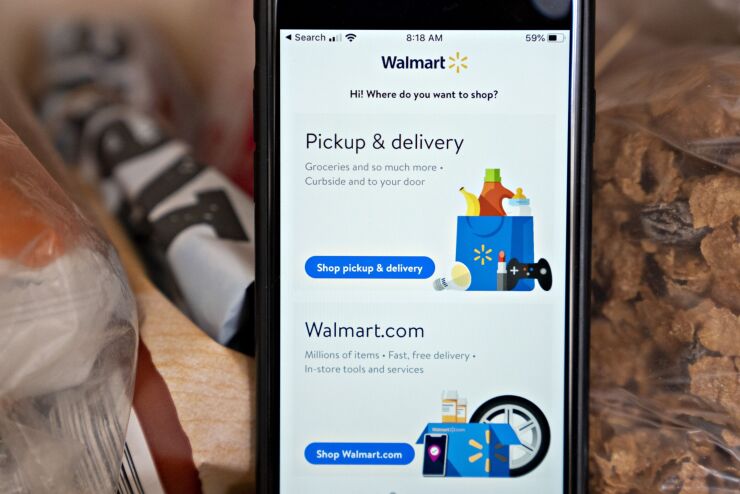The months-long saga of Bytedance’s forced sale of TikTok in the U.S. is finally close to the finish line, and Walmart stands to gain new social tools and youthful consumers in its battle with Amazon and other brick and mortar chains.
Oracle has agreed to acquire a 12.5% stake and Walmart has a deal to buy 7.5% in the company, which will be called TikTok Global.
Walmart has been interested in TikTok at least since the initial Trump administration order in August that threatened a ban on TikTok if ByteDance didn’t divest the app to U.S. owners. Walmart, which would not return a request for comment by deadline, was initially tied to
Walmart faces both upside potential and downside risk, given the potential access to TikTok’s user base and data, coupled with the threat of
“This would be like Walmart investing in Amazon when it first started out,” said Richard Crone, a payments consultant. “TikTok is a growing social media platform and Walmart is getting in on the ground level.”

Walmart could use TikTok’s video-friendly social model in a manner similar to
Having ownership in social media platforms gives retailers the ability to directly source user likes/dislikes and interests, customize advertising and product placement, and potentially to design their own interactive advertising solutions from the bottom up, said Rick Oglesby, president of AZ Payments Group.
“We’re gradually moving towards an environment where shopping doesn’t have to be a separate activity,” Oglesby said. “We’ll be able to just do it on the fly, buying the things we like at the time that we see them. Social media is the best place to get that started because we’re already using it and because it’s already digital.”
There’s lots of ways Walmart could tie social networking and video to in-store and online shipping. The retailer’s recently launched
Earlier in 2020 Walmart made a deal with
Oracle can benefit by extending its online account management platform, which is used for bill payment and presentation. Oracle also supplies technology that supports incentive marketing. Oracle's merchant-facing technology includes
“Oracle is the platform you never see,” Crone said. “If Oracle can socialize ERP for business then it’s game on.” Oracle didn’t return a request for comment by deadline.
Oracle and Walmart's opportunity to invest in TikTok stems from the Trump administration's claims that ByteDance and TikTok are security risks with data under Chinese government control. Trump pushed ByteDance to find a buyer that would manage data from within the U.S. The administration also put similar pressure on WeChat, resulting in a ban on new downloads that was announced Friday. The Oracle/Walmart deal appears to release most of the pressure on TikTok.
As part of the deal, TikTok Global will pay about $5 billion in taxes to fuel an education fund, which the Trump Administration suggested would meet demands that the U.S. receive payment from the divestiture. The ban on new TikTok downloads has at least temporarily been lifted. A federal court blocked an unrelated ban on





